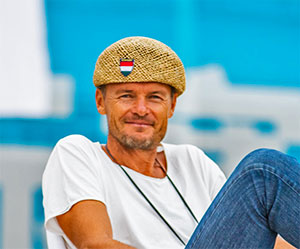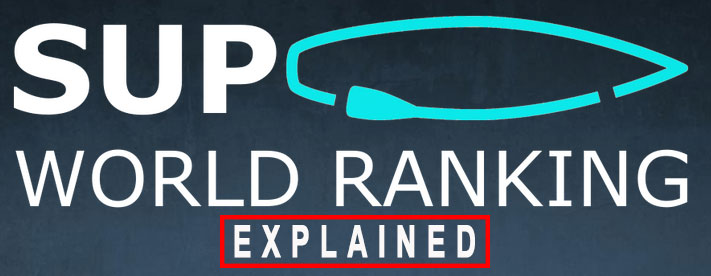After the last video about the lack of a SUP ranking system, it is time to take a closer look the SUP World Rankings put in place by Tibor Hasulyo (yes the father of the Hasulyo brothers). We all knew the ranking was out there but somehow did not really get any traction up until recently. Now people are more and more looking towards Tibors’ ranking system and it was time for the Stand Up Magazin to reach out to Tibor to get a clear picture. We found it particularly interesting on how the race ranking system is being calculated and in fact you can even do this your self if you are a race organizer.
Thank you Tibor for clarifying and giving us your insight:

I am Tibor, 55 years old, born in Hungary. I am a sports professional, I have a master’s degree in coaching and teaching from the Hungarian University of Physical Education.
I met my wife at university. We have two SUP champion sons. I don’t need to introduce Bruno and Daniel the SUPBROz. Csilla, my wife, is the founder and head coach of SEPA. The boys train under her guidance. (you can read about her here http://sepacademy.com/home/about-me/ )
My last 55 years have been influenced by movement, training, competitions and sport, and, of course, by my family.
When my sons became professional SUP racers (in 2015) I watched the development of SUP sport with great interest. I found that this fantastic sport is in its infancy and there is no properly structured independent, independent, and comprehensive system of sporting education.
Even around the rules of the competition there was, and still is, complete chaos.
At that time, the results of different types of competitions were put into a single list. Long-distance, technical and sprint races are all included in the rankings.
The value of the races was pre-determined regardless of how many riders entered and how many countries were represented. (There were 5 star races where only about 25 people competed )
To sum up, I saw 3 basic shortcomings that need to be clearly addressed for the development of sup sport:
– Rule system, competition categories
– Rankings
– Tournament classification system
So in the spring of 2018, I asked mathematicians from the best universities in Hungary to help me create a ranking list for this new sport. Since my sons’ careers had given me full access to the rankings run by all the race organizers and events at the time, I knew exactly what we wanted to change to make the new rankings credible and reliable.
I found the right maths professor with whom we did trial and error for several months to create the SUP specific maths kits.
Our goal was to get the rules right:
- Increase the number of paddlers in SUP races
- Inspire riders to compete in as many races as possible
- Every January, we start the year with a clean slate. (this gives young talent a chance to get to the top)
- We are also planning to set up a perpetual ranking list, but so far we have not had enough results (this project will start in 2023)
- We had to separate the different categories (long distance, tech, sprint) . It is not possible to compare the performance of competitors in different categories in one race.
- To promote the number of female paddlers.
- Every race should have a chance to be listed on the SWR website from anywhere in the world that meets the minimum requirements.
- To rank the results of all existing Federations ( ISA, ICF,ESF Surf), Tour organizers ( APP, EURO Alpin Lake….) and national championships in one list, based on the same set of rules.
There are two steps in the evaluation process of the SWR:
I. Categorization of competitions – This is one of the most important elements of SWR. This makes the conditions fair for everyone. The scoring ( categorization) of the competition is determined ( categorized) according to a fixed, non-variable rule, after the competition, after the facts (after the work has been done), and not in before the race. There is a complicated mathematical formula for this.
By the way you can also use our website to make a preliminary calculation.
II. Calculation of the points of the competitors in a given competition based on the points value of the competition. This is based on another equally serious mathematical formula.
Points value of competitions:
In 2019 when we started, 3 components determined the point value of the competitions.
-Number of entrants,
-prize money, and
-number of nations.
In 2020, we expanded the 3 components to include the value of the TOP competitors (compiled based on 2019 long term results) and now 4 components are the determining factor. That’s when COVID came in and rewrote the competitions.
In 2021, the situation for tournament organizers has improved a bit, but the prize money and the number of nations are far behind 2019.Last year, we were able to rank 128 tournaments.
As you can see, in 2022 we have revamped our website to provide even more information for SUP riders, fans and race organizers.
The last three years have proven that the SWR rating system for Long Distance races gives a realistic picture of the strengths of the TOP riders.
The number of Sprint and Technical races is not yet sufficient to show a statistically acceptable result (at least 5 races should be run by the top 20 riders in these categories), so the TOP list of long distance riders is used as a basis for the scoring.
The source of many misunderstandings is why only the TOP 10 results are recorded for women’s races and not the TOP 20 as for boys.
Everyone wants to fight for women’s equality and they ignore the fact that in 70% of races there are not even 20 women on the start line. So if we had the same rules as for men, we would not be able to rank most of the women’s races.
We have therefore created an exception rule for women to allow more women to be on the SWR list.
Yes, I know that there are some races where there are a lot of women, but unfortunately this is not the case. As long as it is not the case, we can’t afford to judge every race by a separate rule for women.
So until the number of women riders increases, we will not be able to evaluate them on the same points system as the boys. (I guess you also remember those races where the last woman to finish got a cash prize, there were so few women on the start line.)
The prize money situation also raises questions
My personal opinion (and that of SEPA’s head coach – who is a woman) is that equal distribution of prize money is negative discrimination against men. The prize money should be distributed according to the gender ratio of the athletes in the competition ( but that is not my job, it is just another issue to be solved and not only in sup sport )
I also get a lot of questions about the Ultra Long distance races. People want us to have a separate ranking for this category.
One of my favorite races is the ultra long distance race.
In 2011, our family paddled 2,000 km on the Danube from the Black Forest to the Black Sea across 10 countries in 38 days. We consider this a prologue before the sup race, but it was a world record at the time.
Bruno 4 times, Daniel 1 time SUP 11 City winner, so we are doing well in this category.
There are more unanswered questions in this category than in the others, so in my current view it is not feasible to have a fair world ranking.
Some basic questions in this regard:
- Which is more valuable 24 hours non-stop or 5 days 11 City ?
- The unlimited or the 14″ wins ?
- Who can check during a multi-day race that there was no outside help ?
- For how many starters can a fair points system be established ?
- And I could go on and on………
So I will now put these races in the Long Distance list if they meet the SWR rules.
To sum up, with very systematic work, the SWR website has reached 50,000 views in the last 10 months and we receive race results (and appreciative emails) from all over the world.
I know that SUP is still in its infancy:
- It does not have its own federation
- No established network of clubs where kids can paddle
- No union for the competitors
- No uniform set of rules
- No university level trainer program,
- and I could go on and on……..
Despite all this, I know that the sport is growing unstoppably and we need the work of SWR to show the world the achievements of our SUP athletes and SUP race organizers.

